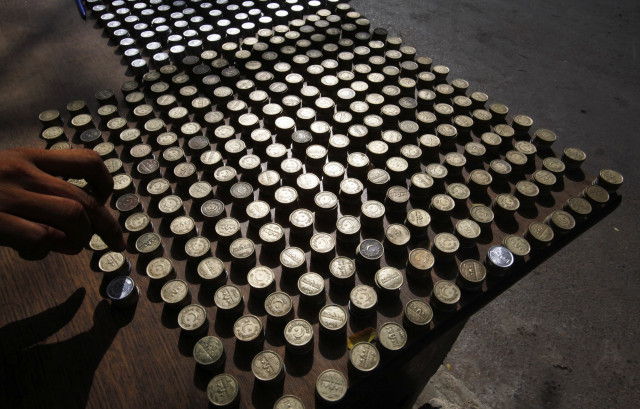Official finding: Rs5b anomaly in Sindh rice procurement
Bureaucrats, rice mill owners collude to rob national exchequer in broad daylight.

The startling PMIC document established a clear link between officials of the federal ministry of food and agriculture, Sindh agriculture department, Pakistan Agriculture Storage and Supply Corporation (Passco) and the district administration in Sindh.
Citing indecisive meetings chaired by the federal food minister and the ministry’s secretary which allowed culprits to act with impunity, the report said: “No final decision was taken in these meetings. Elements responsible for mismanagement and irregularities were not taken to task.”
The report recommends the prime minister, who ordered the commission to initiate the inquiry, to order the FIA to initiate criminal proceedings against the culprits.
It also urges strict departmental action against the top hierarchy of the Passco, including the general manager of paddy procurement, secretary Sindh agriculture department, rice commissioner and DCOs of Dadu, Qambar-Shahdadkot, Jacobabad and Shikarpur.
The scheme to purchase the damaged rice paddy was initiated on April 23, 2009, after the federal cabinet and the Economic Coordination Committee of the Cabinet approved the plan.
Officials of Passco’s “paddy purchase committees and rice mill owners ganged up and…caused a colossal loss of Rs5 billion to the exchequer”, the report said.
However improbable as it may seem, Passco managed to buy 48,853 tons of paddy just four days after the cabinet approval.
As much as 46,853 tons was bought from Dadu and Qumbar-Shahdadkot alone. “It (is) proved beyond (a shadow of) doubt that the procurement of rain-damaged paddy was not genuinely made in these districts”.
“There is plausible evidence that this much paddy was already purchased by rice mill owners from growers in connivance with Passco at prices between Rs200-300 per 40 kilograms. On record, the (same) purchases were shown at the government-notified rate of Rs500-600 per 40kg”.
The inspection commission also determined that most of the sellers were fake when they sent CNIC numbers of 75 persons to Nadra for verification. “Only 21 persons turned out to be genuine,” with a ratio of fake entries as high as 72 per cent.
According to the report, “the purchase record was fully engineered through bogus and fake entries of growers and farmers”.
The report finds the Sindh Passco procured the paddy from middlemen, instead of purchasing directly from farmers. Some Passco officials purchased paddy through “their agents” and showed it rice in the books after getting it processed, causing a colossal loss to the exchequer.
“The decisions taken by the cabinet and ECC were not implemented in letter and spirit. Top Passco officials altered the procurement mechanism, rates, mode of payments to usurp billions of rupees.”
Surprisingly, Passco did not have any money to buy the paddy: it obtained loans from a consortium of seven banks at mark-up rates between 14.8-18 per cent.
Passco’s final procurement tally amounts to 83,279 tons of damaged paddy from Sindh and 28,522 tons from Balochistan.
Published in The Express Tribune, January 13th, 2011.

1724319076-0/Untitled-design-(5)1724319076-0-208x130.webp)

















COMMENTS
Comments are moderated and generally will be posted if they are on-topic and not abusive.
For more information, please see our Comments FAQ